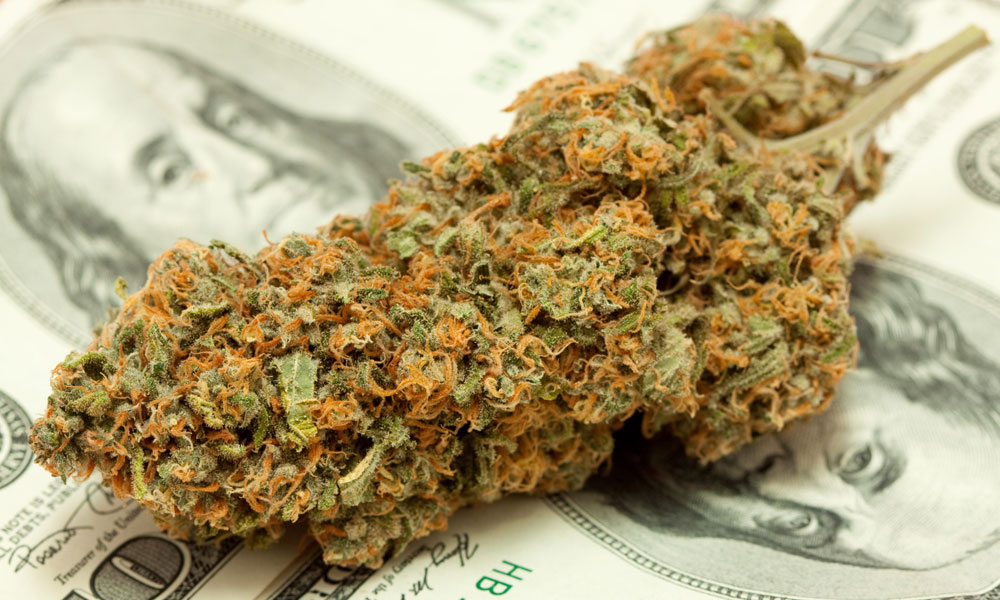
Despite Treasury Guidelines, Banks Still Wary Of Pot Shops
Last week, the U.S. Treasury Department gave legal marijuana dispensaries access to the federal banking system—something they didn't have before because of the differences between state and federal law on cannabis. But a key banking industry group says the guidelines aren't enough to calm banks' jitters about providing their services to pot distributors.
It’s only a starting point, but new federal guidance that opens the door for banks to offer marijuana dispensaries savings accounts and other services could bring pot into the world of mainstream banking.
Last week, the U.S. Treasury Department announced a set of new guidelines softening the standards governing financial transactions by businesses that deal in marijuana. Short version: As long as the businesses are operating based on a set of Justice Department guidelines, the government will look the other way when banks conduct transactions with those businesses.
But is that enough? Associations on both sides have differing takes:
Cannabis groups pleased … The National Cannabis Industry Association, which has pushed in recent months to soften the rules around financial transactions at legal pot shops, said the move was a step forward for the industry. “This is a huge victory for our members, our communities, and the banks that take this opportunity to serve a thriving new market,” NCIA Executive Director Aaron Smith said in a statement. Although marijuana use is not legal at the federal level, 20 states currently offer access to medical marijuana. Washington and Colorado have legalized possession of specified amounts of pot for personal use; the latter allowed shops to open for business in January.
This guidance doesn’t alter the underlying challenge for banks.
… But banks aren’t happy: The American Bankers Association said the new guidance from Treasury is unlikely to change large banks’ reluctance to work with marijuana dispensaries, primarily because the guidance doesn’t have the force of law and therefore would be relatively easy to change under a new administration. “This guidance doesn’t alter the underlying challenge for banks,” ABA President and CEO Frank Keating told The Washington Post. “Possession or distribution of marijuana violates federal law, and banks that provide support for those activities face the risk of prosecution and assorted sanctions.”
One solution, proposed by Rep. Earl Blumenauer (D-OR), is to reclassify marijuana, which is currently classified as a Schedule I drug under the Controlled Substances Act. This puts marijuana (which many consider a gateway drug) in a category with hard drugs such as heroin and LSD. The classification also states that the drug does not have a currently accepted medical use.
For now, the Treasury Department believes that small and medium-sized banks will be willing to work with the pot shops—and that could be enough to satisfy the small but growing sector.
“We don’t believe it’s going to encourage all banks to take on this business,” an unnamed senior Treasury official said, according to the Seattle Times. “At the end of the day it’s a decision each financial institution needs to make on its own.”
(iStock/Thinkstock)






Comments